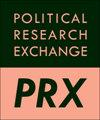The virus of polarization: online debates about Covid-19 in Germany
IF 1.8
Q2 POLITICAL SCIENCE
引用次数: 2
Abstract
To what extent do online debates display features of political polarization and in how far does polarization pose a problem for democracy? We zoom in on affective polarization: the formation of societal groups with hostile feelings towards each other, arguing that affective polarization is particularly problematic for democracy if it features elements of political intolerance, which undermines key tenets of even the most conflict-prone theories of democracy. While affective polarization has been on the rise in several countries, Germany has been considered to be a country with low, and even declining levels of affective polarization. But does this still hold true during the Covid-19 pandemic, which saw a rapid rise in conspiracy theories? Based on a qualitative discourse analysis of online debates about Covid-19 on the Facebook platforms of a mainstream and a non-mainstream German media outlet, we find strong traces of affective polarization on both platforms, involving clear indications of political intolerance. Our findings suggest that the democratic discourse is threatened by the nature of online debates about Covid-19, and it is threatened not only by anti-rationalist conspiracists at the ideological extremes but also by the intolerance of more moderate rationalists at the centre of the political spectrum. © 2022 The Author(s). Published by Informa UK Limited, trading as Taylor & Francis Group.两极分化的病毒:德国关于Covid-19的在线辩论
网络辩论在多大程度上显示了政治两极分化的特征?两极分化在多大程度上对民主构成了问题?我们将重点放在情感极化上:形成对彼此怀有敌意的社会群体,认为如果情感极化以政治不容忍为特征,那么它对民主来说尤其有问题,因为政治不容忍破坏了最容易发生冲突的民主理论的关键原则。虽然情感两极分化在一些国家呈上升趋势,但德国一直被认为是一个情感两极分化水平较低甚至下降的国家。但在阴谋论迅速兴起的新冠肺炎大流行期间,这种说法是否仍然成立?基于对德国主流媒体和非主流媒体Facebook平台上关于Covid-19的在线辩论的定性话语分析,我们发现两个平台上都有强烈的情感两极分化痕迹,包括明显的政治不容忍迹象。我们的研究结果表明,关于Covid-19的在线辩论的性质威胁着民主话语,它不仅受到极端意识形态的反理性主义阴谋论者的威胁,还受到政治光谱中心更温和的理性主义者的不容忍的威胁。©2022作者。由Informa UK Limited出版,以Taylor & Francis Group的名义进行交易。
本文章由计算机程序翻译,如有差异,请以英文原文为准。
求助全文
约1分钟内获得全文
求助全文

 求助内容:
求助内容: 应助结果提醒方式:
应助结果提醒方式:


